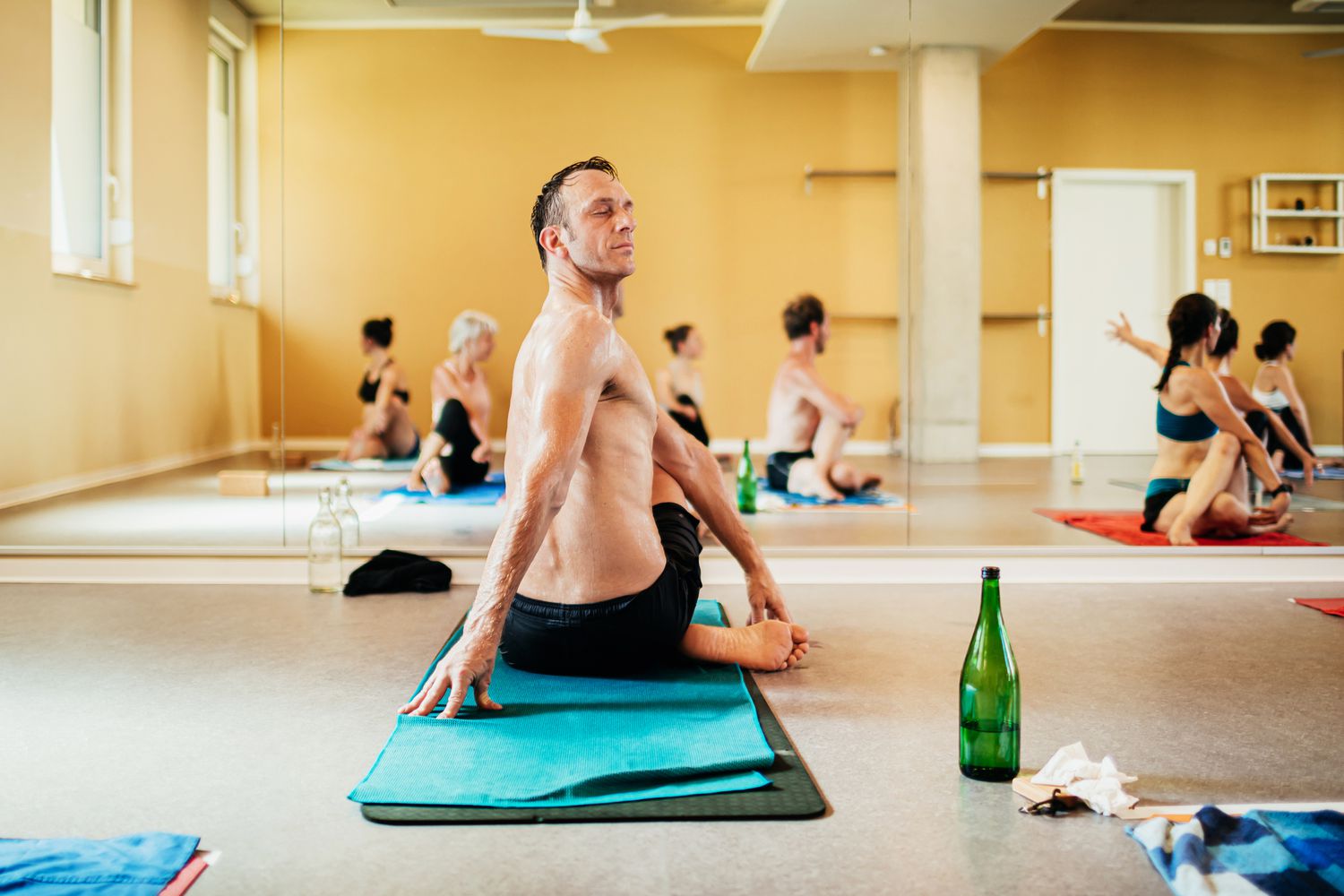Study Finds Hot Yoga May Be Beneficial for Managing Symptoms of Depression

Emerging research hints that heated yoga could be beneficial in reducing depressive symptoms among adults to the extent that it could be seen as a potential treatment for moderate-to-severe depression.
The study, which was published in the Journal of Clinical Psychiatry on Monday, though, only small with 80 participants, shows the potential effects of Bikram yoga - a type of heated or hot yoga - in alleviating depressive symptoms.
According to the study’s lead author, Maren Nyer, Ph.D., director of Yoga Studies at the Depression Clinical and Research Program at Massachusetts General Hospital, the combination of yoga and heat-based intervention offers a non-medicinal approach which could possibly alter depression treatment courses. The approach also brings with it added physical benefits.
In the study conducted at Massachusetts General Hospital, 80 depression patients were split into two groups – with one group partaking 90-minute sessions of Bikram yoga in 105-degree heated rooms and the other group being put on a waitlist and thus not participating in any yoga practice during the entire study.
The study lasted eight weeks. The group that practiced Bikram yoga was advised to partake in at least two yoga classes per week. On average, the participants attended 10.3 classes over the study period.
“Those who received the heated yoga intervention witnessed significant improvement in depressive symptoms compared to those on the waiting list,” stated David Mischoulon, MD, Ph.D., senior author of the study and director of the Depression Clinical and Research Program at Massachusetts General Hospital. "These benefits were attained just by attending approximately one class per week."
By the end of the trial, over half of the yoga participants had a 50% or greater alleviation in depressive symptoms and 44% of the yoga participants’ symptoms were so much improved they were considered in remission.
Holding further trials is crucial due to the limitations of the current study, such as the majority of the participants being college-educated women. It also only looked at one kind of heated yoga, while there are several types and temperatures of heated yoga available.
There are several theories behind why heated yoga could offer relief for depressive symptoms. Mischoulon has noted that exposure to heat can chemically interact with our bodies to counteract inflammation, a proposed cause of depression, hence reducing depressive symptoms.
People with depression may have challenges in body thermoregulation – temperature regulation - and sufficient heat exposure could reset the thermoregulatory system and even reduce the core body temperature from the slight elevation seen in depression, according to Nyer.
Mischoulon advises anyone that, before starting heated yoga, you should consult with your doctor, as you would with any form of exercise.
“Some people find the heat of the intervention very uncomfortable,” said Mischoulon. In fact, for the present study, researchers prepared participants for the discomfort that can often come with heated yoga and how to manage it.
“We prepared people to enter the heated yoga with a 45-minute education session held by the [principal investigator] of the study to make sure they knew hydration requirements, not to eat a big meal, what to expect, how to manage their first time at the studio, and what to wear, etc.,” said Nyer.
There are also some people who may want to skip the heated aspect of hot yoga and try regular yoga on for size instead.
“People with certain medical conditions, such as heart or kidney disease or diabetes, should check with their doctor about participating in heated yoga,” said Mischoulon. “Nonheated yoga may be a good alternative for these individuals, since the experience is less physically demanding.”
It’s also important to note that heated yoga is not yet a “treatment” that can be prescribed for depression—but researchers say there likely isn’t any harm in trying it if you are working with a healthcare team.
“We usually caution people about self-treating depression without supervision from a mental health professional such as a psychiatrist or psychologist,” said Mischoulon. “Certainly, people who are interested in trying hot yoga and are in good general health should do so, and would likely obtain general health benefits, but if the goal is to treat a particular illness, it is best to pursue this with supervision and advice from a doctor.”
And when you’re in the practice, it’s wise to listen to your body and not push yourself too hard—and recognize that showing up to class is half the challenge.
“This form of yoga is challenging, and depression comes with motivational and energetic challenges, so it takes a lot to get into that hot room. Just the act of getting to a hot yoga class is really a radical act of self-care,” said Nyer. “Showing up is a great start and something to feel proud of.”




